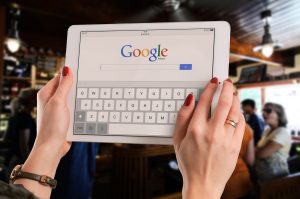Apple Knows You Didn’t Mean to Type ‘Ducking’

Apple on Monday announced an updated autocorrect function that aims to more accurately reflect users’ intended word choices, pleasing customers whose attempts to swear in texts have long been replaced with “duck” or “ducking” (and freeing innocent waterfowl from their unfortunate association with an obscenity).
“In those moments where you just want to type a ducking word, well, the keyboard will learn it, too,” said Craig Federighi, Apple’s senior vice president for software engineering.
The update was announced on the first day of Apple’s Worldwide Developers Conference, where the company also introduced its Vision Pro headset. The company said the new keyboard features would be available as part of the iOS 17 software package expected to arrive later this year.
Autocorrect will use a type of neural network called a transformer model to recognize iPhone users’ most frequently-typed words and offer predictive text, according to Apple. Transformer models, which are at the heart of artificial intelligence systems like ChatGPT, analyze large amounts of text for patterns.
“Ducking” had become such a recognizable error caused by the iPhone’s autocorrect function that The Wall Street Journal conducted an interview with the feature’s creator, Ken Kocienda, at a duck farm.
That system drew upon both a “static dictionary” of common words and proper nouns as well as a “dynamic dictionary” of words that each user typed often, Mr. Kocienda said. But it also did not correct close misspellings of curse words, he said, with the goal of preventing users from accidentally inserting vulgarity into their messages.
The update will allow iMessage corrections to better consider a word’s context in a sentence, said Yulan He, a professor of natural language processing at King’s College London whose given name is usually changed by iMessage to “Tulane.”
Previously, autocorrect matched the spelling of each word, in isolation, against the words in its dictionaries. “Now, when they replace a word, they would ensure the replaced word will still maintain the original meaning of the sentence,” Professor He said. “That’s kind of a key difference.”
Autocorrect, which was developed in the 1980s to accompany word processing programs, has been creating problems for as long as it has been solving them.
In 2014, Naomi Campbell congratulated “malaria” on winning the Nobel Peace Prize. (She might have meant “Malala.”) According to Wired, employees at Goldman Sachs were upset that Microsoft Word corrected their company’s name to incorporate a profanity. The phrase “autocorrect made me do it” has become a way of explaining away embarrassing substitutions such as “sex” instead of “sec.”
Jillian Madison, who curated a website of autocorrect blunders, released the book “Damn You, Autocorrect!” in 2011. “If you say, you know, ‘I’m going to run and pick up the kids,’ it often turns into, ‘I’m going to run and pick up the LSD,’” she told NPR.
In Apple’s presentation, Mr. Federighi said that the new system would make autocorrect “more accurate than ever.” The update will also allow users to tap an autocorrected word to revert it back to what they had typed.




